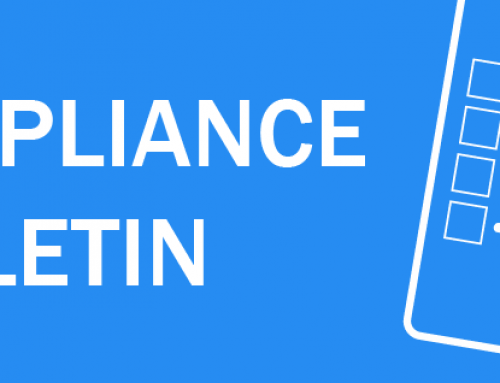It’s that time of year again when we head off to sunnier climes…
For some, the journey to their glamorous holiday destination will involve climbing aboard the fuselage of an aviation masterpiece; but today I don’t plan to discuss the engineering marvel that is powered flight and commercial air liners; rather, today I want to spend a few moments reflecting upon the work of those flying the aeroplane, the well-dressed ladies and gentlemen with their aviator sunglasses and oversized watches; the Commercial Airline Pilot.
To become a Commercial Airline Pilot is an incredibly challenging thing to do, it takes a lot of hard work, and significant amounts of cash as well (it can cost over £100,000 to obtain an Airline Transport Pilot Licence). But before you can begin the hard work, first you have to be fit!
A pilot’s fitness is measured through a medical which can take around four hours to complete. Included is an assessment of their past medical history, their current condition, including the function of all major organs. Their limbs, blood pressure and nervous system are all tested as well. And that is only part of it. Certainly the fitness of a pilot is very important.
Next comes the aptitude test – are they really cut out to be a pilot??
Then the training begins. There are many courses to progress to become a commercial pilot, but the quickest way to progress (for non-flyers) is to go on an ab initio (from the beginning) course. This is a fulltime course which typically takes 18 months to complete. This allows them to become a first officer, then, they must continue to ‘log’ their flying hours and obtain an aeroplane ‘type’ rating (typically another 6 months) before they are able to begin flying passengers on a large commercial aircraft.
Get through all of that and then they really can have some fun, provided they continue to demonstrate their competence on an ongoing basis, conduct the necessary ongoing training, meet the medical requirements and fly enough hours – Easy!
Similarities
There are more than a few similarities between the airline industry and Financial Services. Both have entrance criteria, including fitness and propriety assessments. Both require a level of aptitude and both require Continuous Professional Development.
Continuing Professional Development (CPD) is key to any professional person doing their job. Without conducting such ongoing professional development, there is a serious risk of becoming outdated and out of touch.
So what is your attitude to CPD? Do you regularly record it? Is it relevant? Is it detailed?
Consider this:
Would you want to fly on an aeroplane piloted by someone who passed their exams 25 years ago and has subsequently only flown a couple of hours each year in a microlight?
The same is true of an adviser; your customers deserve to deal with a suitably qualified and competent individual; this means selling products about which you have a high level of knowledge and understanding. This is achieved by keeping yourself up to date with both regulatory and product, changes and developments.
Although the FCA does not stipulate a set number of CPD hours to be completed by mortgage advisers, they do state the following:
A firm must ensure that an employee does not carry on any of the activities 23A to 23E in TC Appendix 1 without having an appropriate level of knowledge and competence, which includes an appropriate:
- knowledge of MCD credit agreements and any ancillary services offered by the firm with them;
- knowledge of the laws relating to MCD credit agreements for consumers (in particular, consumer protection);
- knowledge and understanding of the property purchasing process;
- knowledge of security valuation;
- knowledge of the organisation and functioning of land registers;
- knowledge of the market;
- knowledge of business ethics standards;
- knowledge of the process of assessing a consumer’s credit worthiness or, where applicable, competence in assessing the consumer’s creditworthiness;
- level of financial and economic competency.
The regulator also makes the following points concerning competence:
- a firm must not assess knowledge and competence based solely on relevant professional experience. Hence the need for appropriate qualifications;
- a firm must assess the ongoing knowledge and competence of an employee.
To ensure that advisers are able to evidence any on-going training, it is a requirement to keep a CPD log which documents the variety and the amount of knowledge and skills development which has been carried out over time.
We request that all CPD is recorded using The Key – If you are not familiar with this process, please discuss this with your Compliance Manager.
As long as the CPD being conducted is good quality and varied, then this will be acceptable. In addition, an Adviser must complete and record a minimum average of 3 hours continuous professional development, of which 2 hours must be structured. Therefore there is an annual requirement of 24 hours structured CPD from a total of 36 hours CPD.
Structured CPD would include the following:
- attending a network led training event, seminar or workshop;
- attending an external training event, seminar or workshop that is relevant to the role of the Adviser;
- meeting with a product provider representative to discuss products;
- one to one meeting with Compliance Manager (or for Trainees, their Supervisor);
- completing validation or annual tests.
Other CPD would include:
- reading trade press, or relevant articles in the national press;
- reading product provider criteria and product guides;
- reviewing product provider web sites for criteria and product information.
So this month’s update is more of a reminder; there is nothing new here; but please, please can you all make sure that you are demonstrating both your professionalism and competence by updating your CPD records in a timely fashion; your Compliance Manager will be most grateful.



